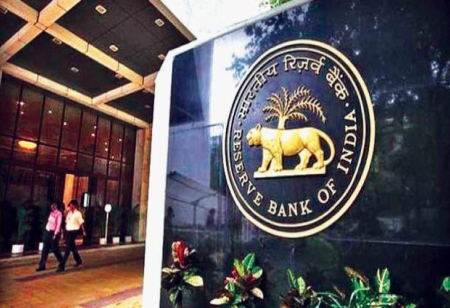
RBI Likely To End Fiscal Year By Increasing Interest Rate by 25bps

 In its final policy review of the current fiscal year, the Reserve Bank of India's rate-setting panel is expected to opt for a smaller rate increase of 25 basis points (bps) (FY23). The RBI's Monetary Policy Committee (MPC) may also take a neutral stance this time, focusing on growth.
In its final policy review of the current fiscal year, the Reserve Bank of India's rate-setting panel is expected to opt for a smaller rate increase of 25 basis points (bps) (FY23). The RBI's Monetary Policy Committee (MPC) may also take a neutral stance this time, focusing on growth.
The decision of the six-member MPC led by RBI Governor Shaktikanta Das will be announced on Wednesday at 10 a.m.
The prediction of a smaller rate hike can be attributed to lower retail inflation and the US Federal Reserve slowing the pace of its benchmark interest rate increase.
The central bank raised the benchmark interest rate by 35 basis points in its December monetary policy review, following three consecutive 50 basis point hikes.
Price hardening can be linked to supply-chain disruptions caused by geopolitical tensions between Russia and Ukraine. This, in turn, is fueling global inflation.
Commodity prices have risen globally as a result of supply constraints caused by the war. To combat 'imported' inflation, the RBI has aggressively increased short-term lending rates.
"Our inflation remains elevated, but there has been a welcome softening in November and December. Core inflation, however, remains sticky and elevated," Governor Das had said.
The RBI has raised interest rates by 225 basis points since May 2022.
The Federal Reserve raised interest rates by 25 basis points last week, following a half-point increase in December and four 75-basis-point hikes prior to that. Since May, the Fed has raised policy rates by 450 basis points.
Following a near-zero start in 2022, the US Fed has now raised the target range for the federal funds rate to 4.5 percent-4.75 percent. Prior to the December review, the funds rate was at 3.75 percent to 4%.
Due to stubborn core inflation, an overwhelming majority of respondents in a poll expect the RBI to raise the key policy rate by a quarter percentage point this week, potentially signalling the end of the current cycle of rate hardening. Many expect the MPC to shift its policy stance from accommodative to neutral now that real rates have turned positive.
While talking about the rate hike, Apurva Sheth, Head of Market Perspectives & Research, SAMCO Securities, said, "We believe that the RBI will hike rates by another 25 bps in the February meeting. This will raise interest rates to a seven-year high of 6.5%. Following this meeting, the RBI will take a wait-and-see approach before shifting its focus to growth."
According to Dhruv Agarwala, Group CEO of Housing.com, the RBI will probably stick to a moderate increase in its benchmark lending rate in the upcoming policy announcement, before hitting the pause button on hikes later in 2023, despite projections of slower growth than previously forecasted for 2023-24.
“Considering the trend of CPI the RBI may go in for a smaller increase in repo rate by 25 basis points. However, with the sticky core inflation and the persisting rate increase by the US Fed, the RBI may continue with a cautious approach to tame inflation while supporting growth over the long term. The stance may be shifted to neutral while keeping a close watch on liquidity,” said Jyoti Prakash Gadia, MD, Resurgent India.
Recently, RBI Governor Das stated that, with some easing of Covid-related restrictions and cooling of inflation in various countries, though still elevated, central banks appear to be shifting toward lower rate hikes or pauses.
"At the same time, they continue to emphatically reiterate their resolve to bring inflation down closer to targets. High policy rates for a longer duration appear to be a distinct possibility, going forward. On the growth front, projections are now veering around to a softer recession as against a severe and more widespread recession projected a few months back," he had said.
The RBI has been tasked with maintaining retail inflation at 4% with a 2% margin of safety. However, it failed to keep inflation below 6% for three consecutive quarters beginning in January 2022.
However, in recent months, retail inflation based on the Consumer Price Index (CPI) has shown signs of moderation, falling below the RBI's upper tolerance level of 6% in November and December.